Videos by American Songwriter
To view #11-50, click here.
OK, I admit it: These aren’t the best 50 country songs.
In fact, I’ll submit that there is no such thing as the “best” or the “greatest” when it comes to songs. Making “Long Black Veil” arm-wrestle with “Sunday Morning Coming Down” is silly and fruitless. Championships are for sports, not songs. And even if I thought that “I’m So Lonesome I Could Cry” was definitely, without a doubt the 11th best country song, I’d have a different opinion five minutes later. And who am I to judge, anyway? I’m an avid listener, a teacher, a journalist and a songwriter (hopefully not necessarily in that order), but that doesn’t mean that you’re wrong and I’m right if you think “Wabash Cannonball” or “Faded Love” or whatever Taylor Swift wrote yesterday is the best country song ever written. Trying to be objective about something inherently subjective is… well, silly and fruitless.
Well, why make a list, then? In my case, I thought it’d be fun to make a list of best country songs because I could put my own songs right up at the top. Me = Better Than Hank Williams, in just a few keystrokes. Sadly, the American Songwriter folks told me that wouldn’t be kosher. So I thought for hours and even days about the songs that have meant something to me, and then I whittled hundreds of those songs down to a list of 50, using all available powers of intellect, memory and befuddled whimsy.
I tried not to think about what songs had been popular, and I removed the genre distinctions we make between country and what is now often called Americana music. For our purposes here, Merle Haggard and Townes Van Zandt are both country. And I also tried to keep from loading it up with a bunch of songs from any one particular writer. Truth be told, there are days when I think the best 50 country songs were all written by Tom T. Hall. Other days, Kris Kristofferson, Hank Williams or John Prine would hold that private honor.
In the end, I arrived at nothing definitive. And, no, I cannot explain for the life of me why Steve Earle’s “No. 29” isn’t in the #29 slot, nor can I justify the exclusion of “Blue Eyes Crying In The Rain,” “Detroit City” or “Abilene.” I’ll repeat: These aren’t the best 50 country songs. But in my opinion, they are 50 songs that songwriters should know.
10. “Desperados Waiting For A Train”
Written and recorded by Guy Clark. Released 1975.
First line: “I’d play the ‘Red River Valley.’” Second line: “And he’d sit in the kitchen and cry.” People call Clark “the Craftsman,” and he doesn’t shy away from that. But “Desperados” is so far beyond craft. This song looks down from great heights at little bitty craft and waves smugly. As with Tom T. Hall’s “Mama, Bake A Pie,” understatement is key here. “We was friends, me and this old man,” Clark writes. And then he continues on to a conclusion both dismal and beautiful. Good lord.
9. “Mama, Bake A Pie (Daddy Kill A Chicken)”
Written and recorded by Tom T. Hall. Released 1971.
The most devastating anti-war song you’ve ever heard, with wry chuckles that set you up for crushing blows. In a few minutes, Hall covers sadness, alcoholism, family relations, ignorance, apathy and love, without ever shifting the narrative away from the thoughts of a wounded soldier coming home. “I know she’ll come and see me, but I bet she never once looks at my legs/No, she’ll talk about the weather, and the dress she wore at the July 4th parade.”
8. “You Don’t Know Me”
Written by Cindy Walker and Eddy Arnold. Recorded by Ray Charles. Released 1962.
Walker likely wrote the bulk of this classic unrequited love song, which Ray Charles took to great heights on his groundbreaking Modern Sounds In Country & Western Music album. “You Don’t Know Me” has survived trends and decades, and it has been recorded by Elvis Presley, Emmylou Harris, Van Morrison, Willie Nelson and other geniuses of song.
7. “Gentle On My Mind”
Written by John Hartford. Recorded by Glen Campbell. Released 1967.
Campbell’s version of Hartford’s Grammy-winning song has aired more than 5 million times on television and radio. Lyrically, it’s among it’s among the densest songs in popular music. Words upon words spill out, yet a lovely melody is unhampered by the chatter, and the lyrics were a beacon for new-era songwriters like Kristofferson and Tom T. Hall. “Through cupped hands, ‘round a tin can/I pretend to hold you to my breast and find/That you’re waiting from the back roads by the rivers of my memories/Ever smiling, ever gentle on my mind.”
6. “Ode To Billie Joe”
Written and recorded by Bobbie Gentry. Released 1967.
This is a heartfelt study of indifference, complete with Southern Gothic imagery and unexplained mystery. What did they throw off the Tallahatchie Bridge? Why did Billie Joe off himself? What is the true nature of empathy? Of family connection?
5. “Sunday Morning Coming Down”
Written and recorded by Kris Kristofferson. Released 1970.
Kristofferson gives us a portrait of desolation, complete with humor, drama and linguistic specificity. It’s a four-and-a-half minute song, and Kristofferson doesn’t ease up on a single line. There’s an a.m. beer, and a “cleanest dirty shirt” and a “laughing little girl” and so much detail and drama. You could write a book about this song.
4. “Long Black Veil”
Written by Marijohn Wilkin and Danny Dill. Recorded by Lefty Frizzell. Released 1959.
Well, the story was good enough: a man accused of murder could save himself from hanging by providing an alibi. He dies rather than giving his alibi, because the truth is that he was in the arms of his best friend’s wife at the time of the slaying. Cool story, then. But Wilkin and Dill surmised and delivered a mind-blowing songwriting angle: They allowed the story to come from the perspective of the dead man, who tells the tale and lets us know that the friend’s wife still visits his grave.
3. “Silver Wings”
Written and recorded by Merle Haggard. Released 1969.
Here’s a song structure no group of Music Row co-writers would approve these days: chorus, bridge, chorus, guitar solo, chorus, fade, out. From this, Haggard conveys a sadness that can’t be spoken.
2. “The Gambler”
Written by Don Schlitz. Recorded by Kenny Rogers. Released 1978.
Those who were around in the 1970s and early 1980s may have trouble distancing this career-saving classic song from the mediocre movies, bad jokes, bumper stickers and “Know when to fold ‘em” advertising campaigns that it inspired. But “The Gambler” is a masterpiece of subtlety and emotion (two qualities many writers erroneously assume to be polar opposites). It’s also an anomaly: it’s a story song in which the story’s details remain mysterious, and it contains an unforgettable chorus that doesn’t arrive until a minute into the song. These days, presidential candidates and ESPN SportsCenter anchors quote Schlitz’s words. But remove this song from radio memories and cultural importance—take this thing all the way out of context—and you’re left with words and a melody that any of us would be proud to have written.
1. “Lost Highway”
Written by Leon Payne. Recorded by Hank Williams. Released 1949.
Country’s ultimate cautionary tale. A man beyond redemption offers the only advice he can muster: Don’t be like me. “I was just a lad, nearly twenty-two/Neither good nor bad, just a kid like you/And now I’m lost, too late to pray/Lord, I’ve paid the cost on the lost highway.” Leon Payne wrote “Lost Highway” while hitch-hiking to Texas, trying to go see his ailing mother. First recorded by Payne in 1948, the song found its perfect vehicle in the voice of doomed hillbilly genius Hank Williams, who was well familiar with the stretch of bad road Payne painted.


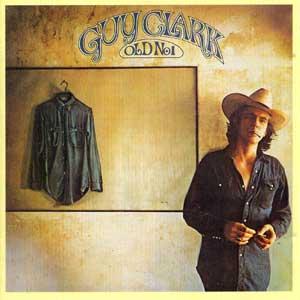

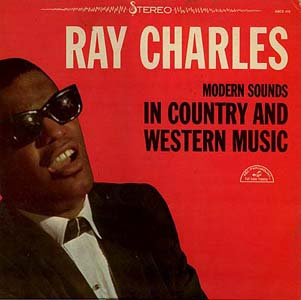
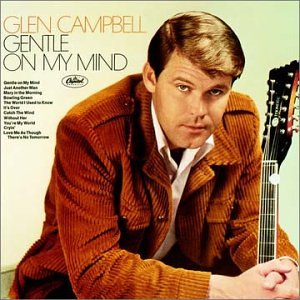
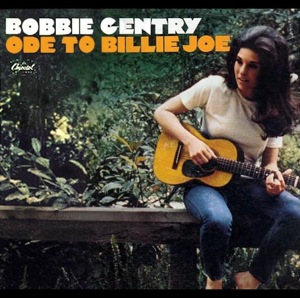
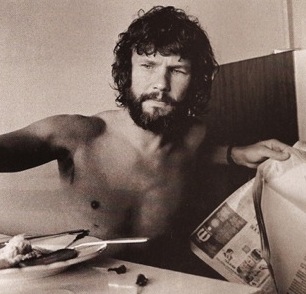

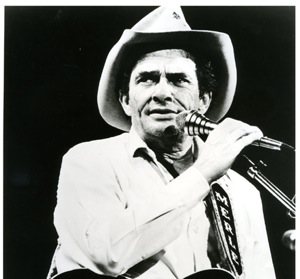
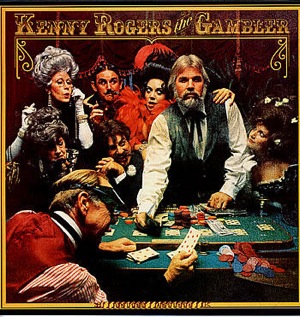













Leave a Reply
Only members can comment. Become a member. Already a member? Log in.